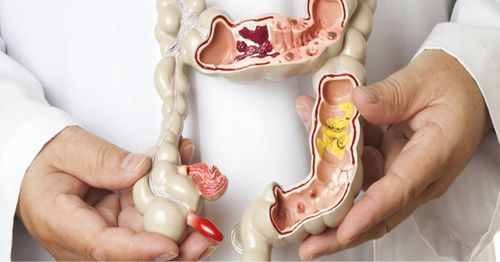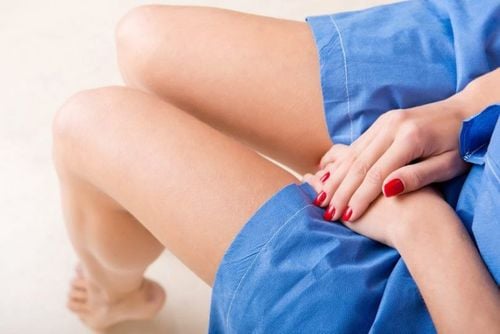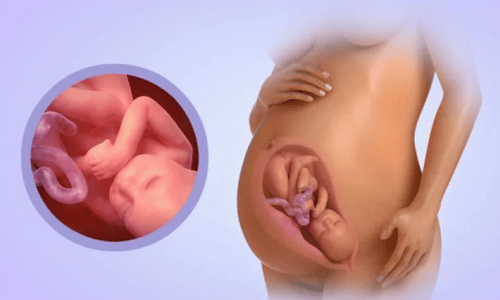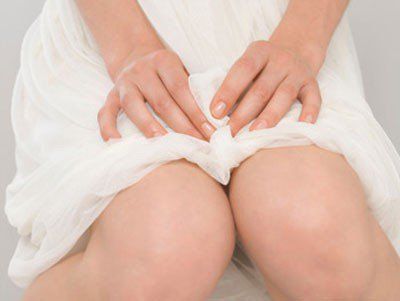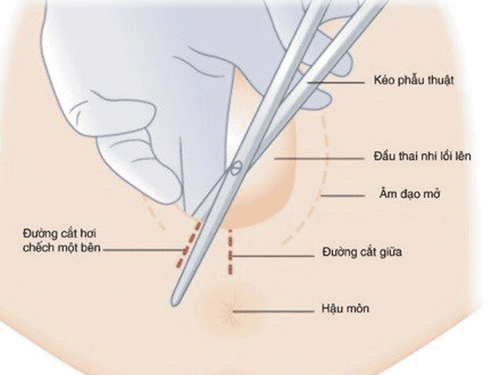This is an automatically translated article.
The article was professionally consulted by MSc, Dr. Trinh Thi Thanh Huyen - Obstetrician and Gynecologist - Department of Obstetrics and Gynecology - Vinmec Hai Phong International General Hospital.Vaginal birth is the recommended method, postpartum women will usually need to stay in the hospital for about 48 hours and it will take a few weeks for the body to fully recover.
1. What is Vaginal Pain?
During labor, the perineum, which is the area between the vagina and rectum, can stretch, tear, and possibly cause pain. Postpartum pain may be stronger if you have an episiotomy to open the vagina for the baby to come out. To relieve pain at home, try a few things like: Place an ice pack or cold pack on the painful area to reduce pain and swelling. Sit on a pillow instead of a hard surface. Use a small pot of warm water to keep your vagina clean when you pee. When you have a bowel movement, press a clean pad or towel to the painful area and wipe from front to back. That will ease the pain and help you avoid infection.2. Vaginal discharge
Usually, you'll notice vaginal discharge and discharge for a few weeks after giving birth. This is the body's way of getting rid of the extra tissue and blood inside the uterus that nourished the fetus during pregnancy. For the first few days, you'll notice the blood is bright red, it will fade and turn pale pink to brownish, then yellow or cream before disappearing.3. Pains
It is common to have uterine contractions within a few days of giving birth. In addition, menstrual cramps may also occur. This happens because your uterus is contracting. You may feel these pains more while breastfeeding, because breastfeeding releases chemicals in your body that cause your uterus to constrict. You can place a heating pad on your abdomen or you can ask your doctor if you can take an over-the-counter pain reliever.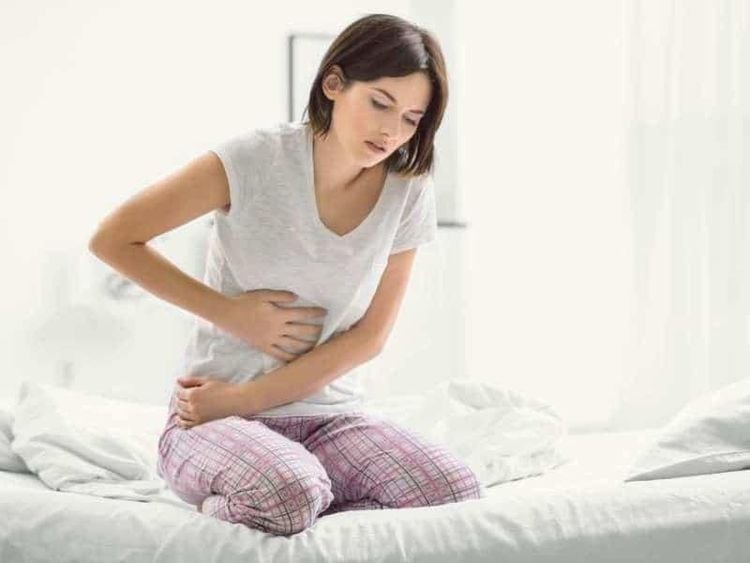
Sự xuất hiện các cơn co tử cung trong vài ngày sau khi sinh là hiện tượng phổ biến
4. Constipation
You may have trouble having a bowel movement after giving birth. This is usually due to a side effect of pain relievers taken during delivery. If you've had an episiotomy, trying to have a bowel movement will likely damage your stitches. To ease constipation, drink plenty of water and eat foods high in fiber. Ask your doctor if you should try a stool softener. If you have hemorrhoids (swollen superficial veins) after giving birth, try applying witch hazel to relieve pain and itching.See more: Constipation postpartum - How to treat?
5. Diarrhea
You may be constipated or you may have the opposite problem. The muscles and tissues in the rectum can be stretched or torn during childbirth, so you can leak gas and stool. Diarrhea should improve within a few months of giving birth. Depending on what's causing it, your doctor may prescribe medication to control diarrhea or bloating. Pay attention to the food you eat. Dairy, gluten or fatty foods and artificial sweeteners can cause diarrhea in some people. Try Kegel exercises to help rehabilitate your pelvic muscles.See more: Postpartum pelvic floor exercise
6. Difficulty urinating
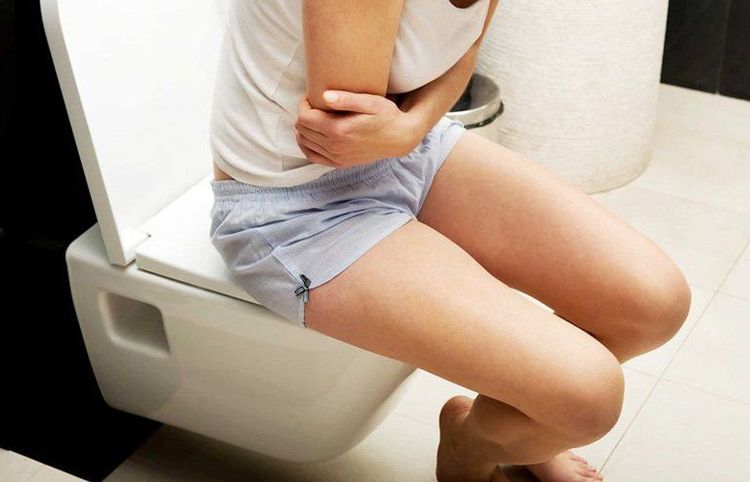
Việc sinh nở qua đường âm đạo sẽ kéo căng bàng quang và có thể gây tổn thương thần kinh và cơ trong một thời gian ngắn
See more: Pelvic rehabilitation treatment helps relieve uncomfortable postpartum symptoms
7. Breast swelling and pain
During the first 3-4 days after birth, the breasts make colostrum for the baby to suckle. After that, the breasts will swell when full of milk. Pumping will ease this swelling and pain, or you can place a cold washcloth on your breasts between feeds. If not breastfeeding, wear a firm and supportive bra. Avoid rubbing your breasts as this will cause more milk to come out.8. Changes in hair and skin
Don't panic if your hair is thinning in the first 3-4 months after giving birth. This happens due to changes in hormone levels. When you're pregnant, your hormone levels go up, causing your hair to grow faster and with less shedding. You may also see red or purple stretch marks on your abdomen and chest. They will not disappear completely, but will fade.9. Feeling sad
After giving birth, you may go through a spiral of emotions including anxiety, nervousness, and fatigue in the early days of motherhood. It's called the "baby blues" and it's caused by hormone changes. However, if you feel this way for more than a few weeks, call your doctor because you may be suffering from postpartum depression, a more serious condition that needs treatment, such as: talk therapy.See also: Overcoming postpartum depression: What you need to know

Sau khi sinh, bạn có thể trải qua một vòng xoáy cảm xúc bao gồm lo lắng, hồi hộp và mệt mỏi trong những ngày đầu làm mẹ
10. When to see your doctor
You should see your doctor for a checkup about 6 weeks after giving birth as you will need to have your vagina, cervix, and uterus checked, as well as your weight and blood pressure. You can start having sex again, but first ask your doctor about birth control and get back to your exercise routine. Before the physical examination, but if you notice the following signs, call your doctor for help:Vaginal bleeding that requires more than one pad per hour Severe headache that does not go away Leg pain, accompanied by redness or swelling Breast pain, swelling, heat and redness To relieve the pain of childbirth, Vinmec offers a Maternity Package with a complete “painless delivery” service during childbirth and postpartum by technique of non-morphine epidural and pudendal nerve anaesthesia. During the birth process, the mother will be guided by the midwives on how to push and breathe properly, the baby will be born in just 10-15 minutes. After birth, the baby will be cared for in a sterile room before being returned to the mother.
Pregnant women will rest in a high-class hospital room, designed according to international hotel standards, 1 mother 1 room with full facilities and modern equipment. Mothers will be consulted by nutritionists on how to feed the baby before being discharged from the hospital. Postpartum follow-up with both mother and baby with leading Obstetricians and Pediatricians.
Please dial HOTLINE for more information or register for an appointment HERE. Download MyVinmec app to make appointments faster and to manage your bookings easily.
Reference source: webmd.com



